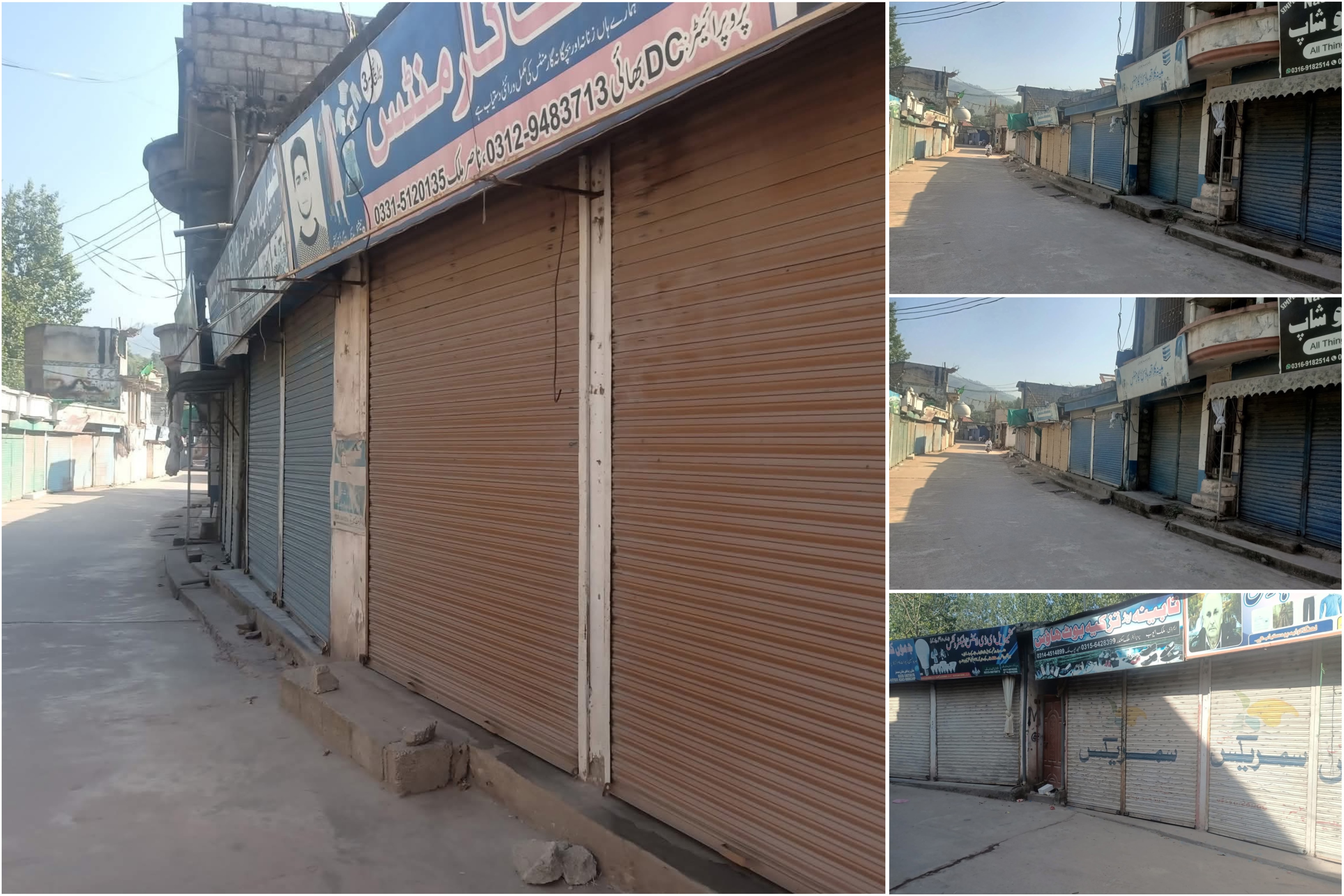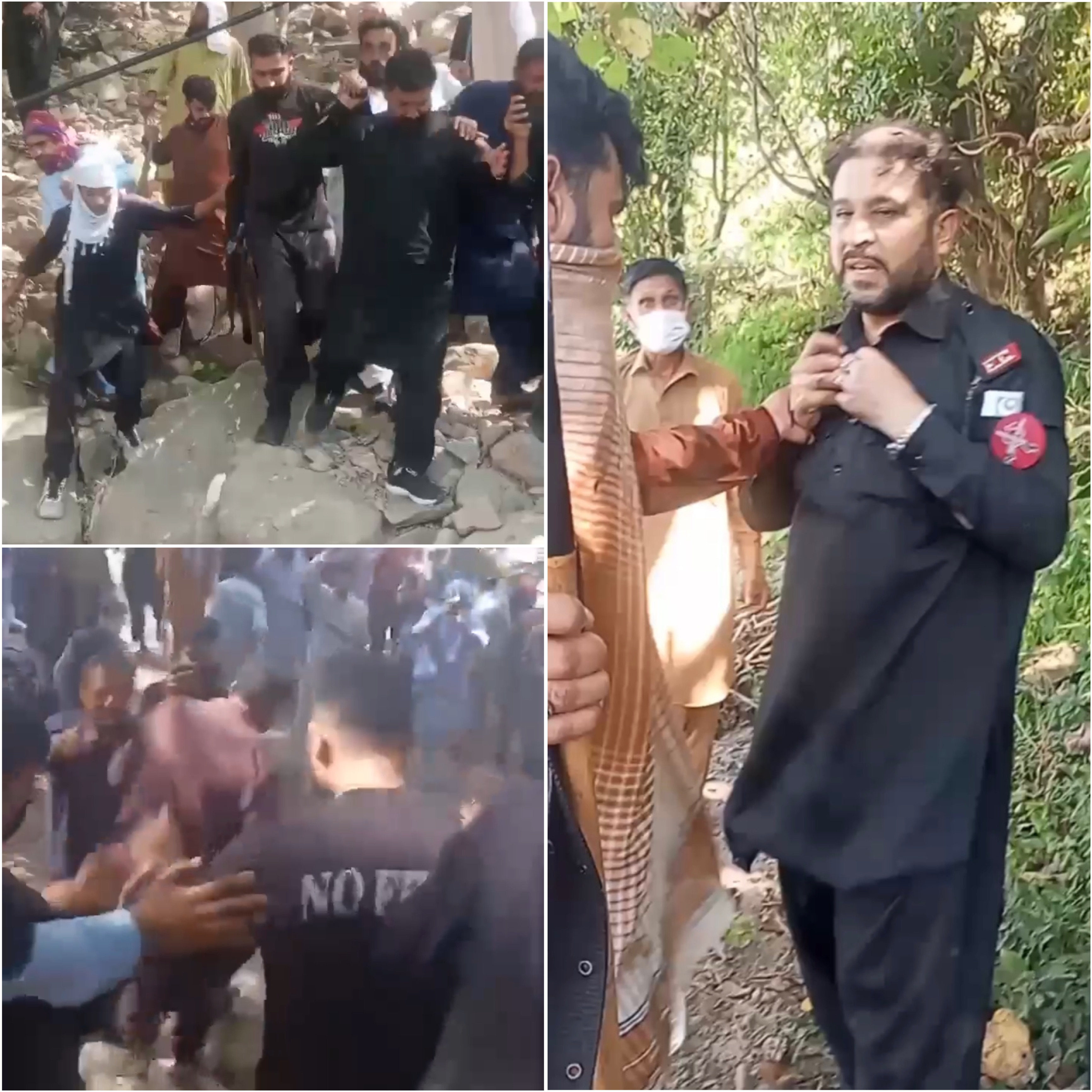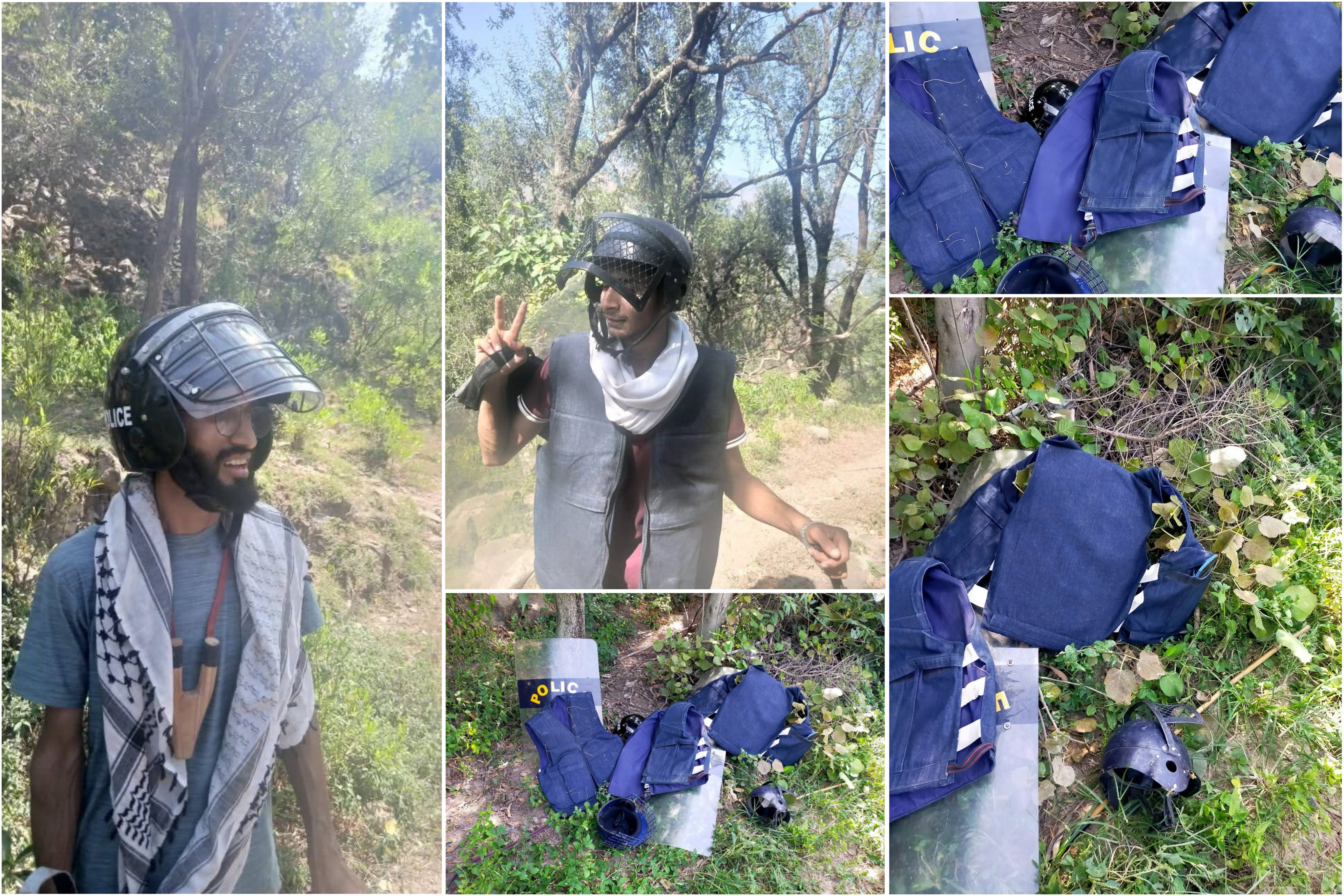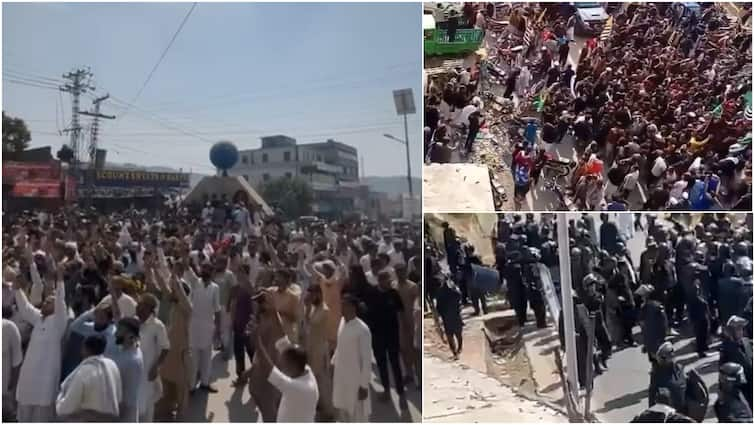Pakistan-occupied Kashmir (PoK) is witnessing conditions akin to a civil war. People are physically confronting Pakistani police and paramilitary Frontier Corps, seizing their batons, helmets, and shields. Merchants across all districts of PoK, frustrated with the Pakistani government, have shut down shops, imposing a de facto lockdown. Whether in Mirpur, Muzaffarabad, or Rawalakot, shops remain closed, and people are taking to the streets against the Pakistani authorities.

The protests are organised under the banner of the Awami Action Committee, demanding an end to discrimination against Kashmiris by the Pakistani government.
Police, Paramilitary Forces Clash with Protesters
To suppress the shutdown, the Pakistani government has deployed more than 2,000 paramilitary Frontier Corps and Islamabad police personnel across PoK. Exclusive images and videos obtained by ABP News from the Kohala area of PoK’s capital, Muzaffarabad, show Kashmiris beating Frontier Corps personnel during protests and looting their equipment. In retaliation, police and paramilitary forces resorted to stone-pelting against demonstrators.


Long-standing Grievances Over Resources and Representation
Across PoK, while shops remain closed, people are shouting slogans against the Pakistani government, demanding their rights. The protests are fuelled by issues such as the Mangla Dam and Neelum–Jhelum projects, which generate electricity from PoK’s rivers and land, yet local Kashmiris see little benefit. Around 60% of this electricity is supplied to Pakistan’s Punjab province and other areas. Additionally, Pakistan appoints 12 members to PoK’s assembly, with nominees often coming from Indian-administered Kashmir, effectively silencing local voices for Pakistan’s political gains.
Anger In PoK Over Exploitation, Rising Prices
Since Pakistan occupied Kashmir and Gilgit-Baltistan in 1948, it has systematically exploited the region and its people. Instead of building universities and medical colleges, the Pakistani government has established terrorist training camps in PoK. Currently, PoK has only six government colleges and two medical colleges, which face chronic shortages of facilities. Meanwhile, more than 12 large terror training camps like Abdullah bin Masood, and over 20 medium-sized centres like Markaz Shohada-e-Kashmir, exist with support from Pakistan’s government and military.
One major demand of the protesters is subsidies for essential commodities such as flour, rice, and lentils, as prices in PoK are extremely high — rice at PKR 301/kg, flour at PKR 110/kg, red lentils (masoor dal) at PKR 360/kg, and pigeon peas (arhar dal) at PKR 710/kg. By comparison, in India, premium basmati rice costs ₹110/kg, wheat flour ₹42/kg, and arhar dal ₹112/kg.



